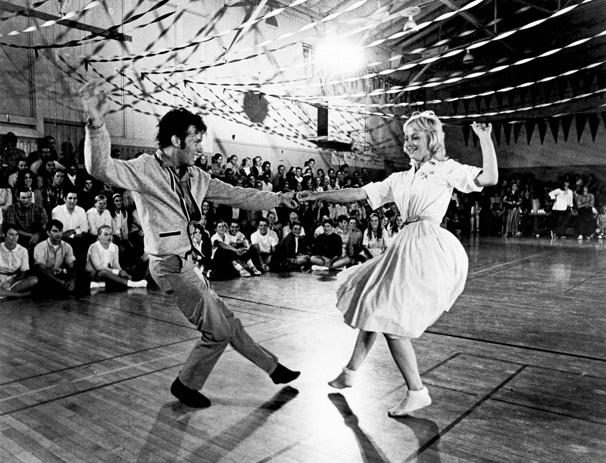This composer is a famous American Composer who is known for his marches and was famous in the early 1900s and 1910s.

John Philip Sousa
This music genre began in the mid 1950’s as a melting pot of Traditional and Electrified Blues, Country, R&B, and Gospel.
Rock n' Roll
Freddie Mercury, who was known for his flamboyant presence on-stage and a vocal range that spanned 4 octaves, was the lead singer of this band/group.
Queen
This genre of music first became prominent in the late 1970s and was mostly popular in the 1980s. It features the synthesizer as the dominant musical instrument and includes songs like "Juke Box Hero" and "Take on Me."
New Wave or Synth-pop
This show was a singing competition show that was the most popular in the 2000s and was rated the #1 TV show in the United States from 2005-2010.
American Idol
This composer was arguably the most famous ragtime composer, coined “The King of Ragtime.”

Scott Joplin
Often given the nickname “Ol’ Blue Eyes," this musician was an Italian-American who was one of the first instances of someone who was both a celebrity and a musician.
Frank Sinatra
After the Beatles split up, this former member pursued a solo career with artist Yoko Ono and they found commercial success with their second album “Imagine."
John Lennon
Koji Kondo is a Japanese music composer, pianist, and sound director who is most weel-known for the writing the music for these 2 famous video game franchises, owned by Nintendo.
Mario and Zelda
This music genre is named after the sound processors found in early games consoles like Atari 2600 and Commodore 64.
8-bit or Chiptune
The development of a style of Ragtime music, or "jass" (which later came to be known as Jazz) started in this American City.
New Orleans
This musician, often called the “King of Rock n’ Roll,” was known for the way he mixed his influences from Country, Blues, and Gospel music.
Elvis Presley
This groovy music genre, prevalent in nightclubs in the 1970s, was a subculture that rose out of the city nightlife scene.
Disco
This song is known for saving MTV and was ludicrously expensive to make in comparison to the other videos of the time (it costed over $500,000 to make at a time when most videos costed only tens of thousands to produce).
Michael Jackson's "Thriller"
This pop musician is most well-known for the way that she dressed and performed, adopting outfits that were very extravagant and eccentric.
Lady Gaga
Louis Armstrong, who is widely regarded as the most influential jazz musician of the 1920s, played this instrument.
Trumpet
These events, which were extremely popular in the 1940s and 1950s, were usually informal dance events for teenagers held by the American Junior Red Cross to raise funds for the war effort during World War II and were normally in gyms or cafeterias at high schools.

Sock Hops
This genre of music is associated with drugs and representing hallucination. But this type of music was also about sound effects like electronic instruments, reverse-tape, and long improvised solos imitating jazz.
Psychedelic Rock
This practice in rap music is defined as the act of taking a portion of one sound recording and reusing it as an instrument or a different sound recording of a song or piece.
Sampling
This genre of electronic dance music originated in South London in the early 2000s and includes musicians like Skrillex, Zed Bias, Oris Jay, and El-B.
These two brothers are credited as being the main innovators/composers of what became the American Musical in the 1920s and 1930s.
The Gershwin Brothers
This woman was nicknamed the "First Lady of Song" and was the most popular female jazz singer in the U.S. for more than 50 years. She became known especially for her scat-singing.
Ella Fitzgerald
Folk songs that were used at peaceful protests and voter registration drives in the 1960s were also referred to as this.
Freedom Songs, Dream Songs, or Civil Rights Anthems.
In film and video game music, this musical device is defined as a recurring musical phrase that is thematically associated with a specific character, place, or concept.
Leitmotif
This device, more commonly referred to as Auto-tune, is a synthesizer that produces sounds from an analysis of speech input.
Vocoder